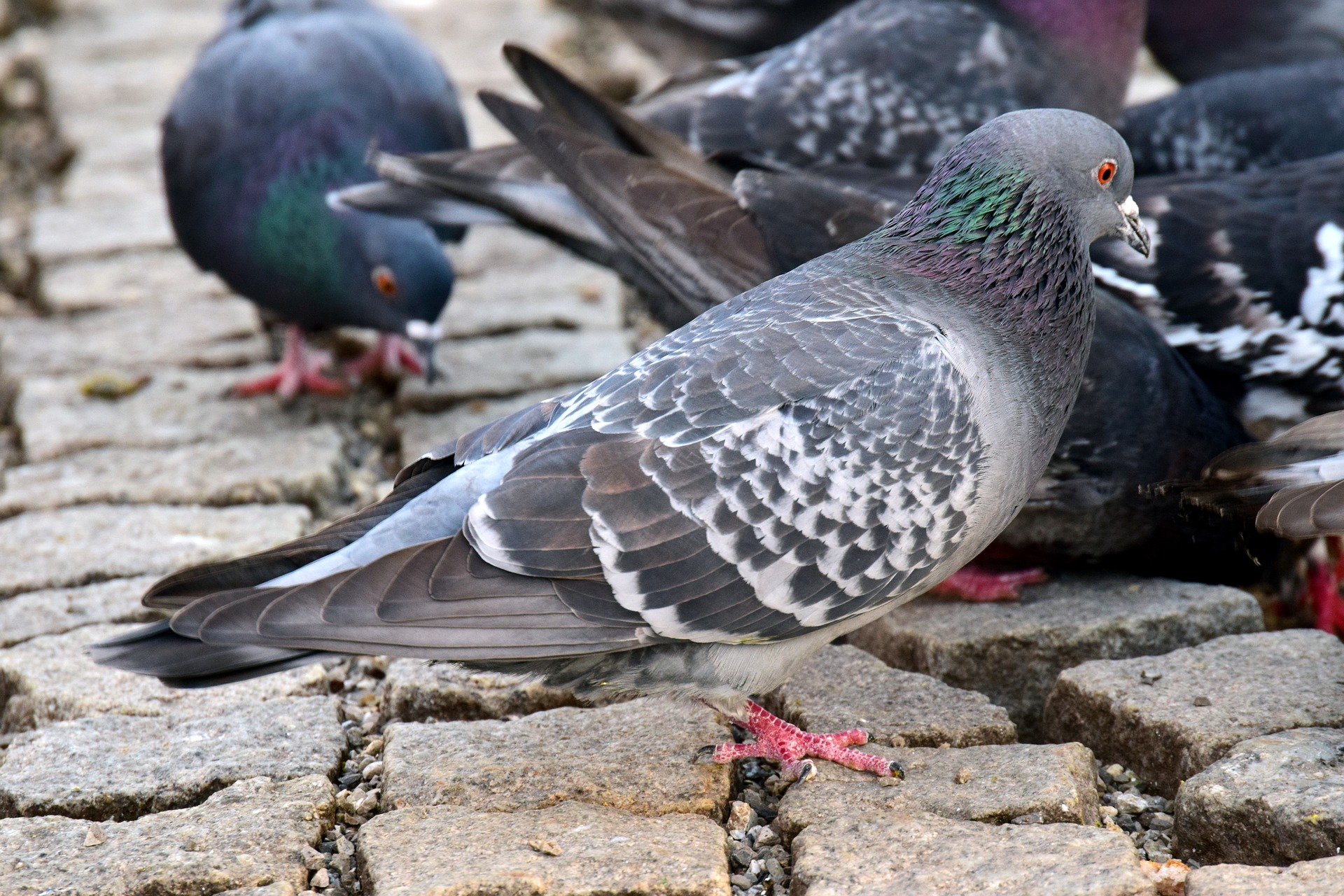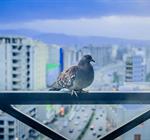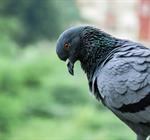
22 Dec 2021 | Apex Environmental Services (UK) Ltd
It’s pretty strange hearing birds being classified as pests, especially for someone whose only encounter with them has been in the wild.
Birds in the wild appear to be beautiful and majestic creatures. However, they are sometimes an unbidden nuisance pest to homeowners and according to BPCA, even species typically considered “pest birds” in the UK are protected by the law.
Depending on its location, your property could be the ideal habitat for birds to infest. Most birds have made a habit of scavenging our waste food and needing only the smallest amount of shelter to make their nests.
Once a pest bird infestation takes root, the small problem could turn into a huge one that’s more difficult to get rid of without you realizing it. These infestations of certain bird species can be harmful to people and the damage that they cause can become very costly.
Recognising the signs of bird infestation with immediate action will reduce the time and effort needed to control it effectively. In this article, we will look at some of the signs of infestation that you should look out for.
Birds Resting on Roofs and Ledges
This is one of the obvious signs of an infestation. Be it gulls, pigeons, or starlings, you’ll probably be able to spot several birds hanging around your property. And this should be a cause of worry.
If you ever notice birds around your property, keep a keen eye on them to see whether they’ll move away on their own or whether their numbers will keep increasing with time. Pest birds like pigeons are overly social creatures who often reside in flocks of 50 to even 500, so if you spot a few of them around your home, there's likely to be more. This is a sign so be sure to pay attention to other signs of a bird infestation.
A bird number that seems to be growing is also a clear indication of a bird problem. Check trees, your roof and other structures around your home for birds.
Bird Droppings
Birds' excrement is not only messy but can also cause a lot of damage to your property due to its acidic nature. The droppings could also spread diseases to humans. According to NSW Health, Psittacosis or ornithosis is one common disease caused by a bacterium carried by birds. Humans commonly catch the disease by inhaling dust containing secretions and droppings from infected birds.
You will also notice bird droppings because they are likely to cause slip and fall accidents when stepped on. Regularly check around your property and roof for bird droppings. If you notice this is happening regularly or there is a build-up below potential perch areas, you might have a bird infestation problem at hand to deal with.
Bird Noises
Birds are noisy creatures who can't quite find a way of disguising their presence around your home. A bird infestation can be very loud and you may hear the noise of birds landing and settling on roofs or bird cries. This is especially evident if there are young chicks who may have a distinct cry, or when they gather in a large number.
You can hardly miss this sign as their chirps could cause great disturbance. Listen for bird noises coming from outside, birds on your roof, and in your attic. This is a clear sign of a bird infestation.
Damaged Roofs and Eaves
Most birds aim to create nests where they can lay their eggs, and they mostly prefer out-of-the-way places such as your roof and eaves. Pigeons in particular are known to seek out sheltered areas that are hard to reach to protect themselves and their chicks from predators.
By creating nests on roofs, they can cause damage to your property by moving loose roof tiles while attempting to fit into small gaps. They can also nest beneath solar panels and destroy them.
A nest is the equivalent of a house to a bird. Most birds will make their nests from available materials including straw, twigs, leaves and feathers. Check for nests on your roof, gutters, eaves, ledges, attic, chimney stacks, balcony, and in cracks and vents. You should also check in the trees on or near your property to see if they have built any nests there.
Damaged Gardens
Pest birds will sometimes get into your garden where they’ll cause significant damage to your plants or produce. They can invade the garden just because they are attracted by flowers, potential nesting areas, or in search of food. Regularly check for signs of bird damage in your garden as this could be indicative of a pest bird infestation.
Debris
Nesting materials and bird feathers will often come loose and find their way into your gutters and drainage systems. This could cause water damage by blocking guttering and drains, so it’s crucial to check those areas if you notice nesting materials strewn around your property.
Check your drains for these scattered nesting materials and bird feathers to prevent clogging and to catch any bird infestations.
After Discovery
A stitch in time saves nine. Early diagnosis and finding a quick remedy are the keys to controlling a pest infestation. A pest problem diagnosed early should be easy to control. Failure to note an infestation early enough will lead to an increase in the number of birds to a difficult-to-manage level. By this time, the birds will probably have caused so much damage to your home.
After discovery, you can employ some effective ways of combating an infestation. If nothing seems to pay off, you can contact us for our bird control services that will amaze you.
When handling bird infestations, you need to be careful not to contravene the wildlife & Countryside Act 1981 which offers certain levels of bird protection. That makes it even better to seek out the professional antibird services that we offer to keep your home safe from birds.
Contact Professionals
The easiest and most effective way to get rid of birds is to call in professionals. It may not always be the cheapest option, but you get bang for your buck.
Professional wildlife control companies can properly identify the birds infesting in your home and customize their bird control strategy according to that species’ specific feeding habits, nesting tendencies, and general behaviour.
You can reach out to us for the best bird control Services. We have qualified personnel at your beck and call you to get you through a bird infestation nightmare and prevent any future infestation around your premises.
Additionally, all work undertaken by Apex is strictly in line with the Wildlife & Countryside Act 1981, which aims to conserve wild birds and preserve air safety.
For a no-obligation chat, contact our team today on 01256 578025 or email us at info@apexbirdcontrol.uk.


